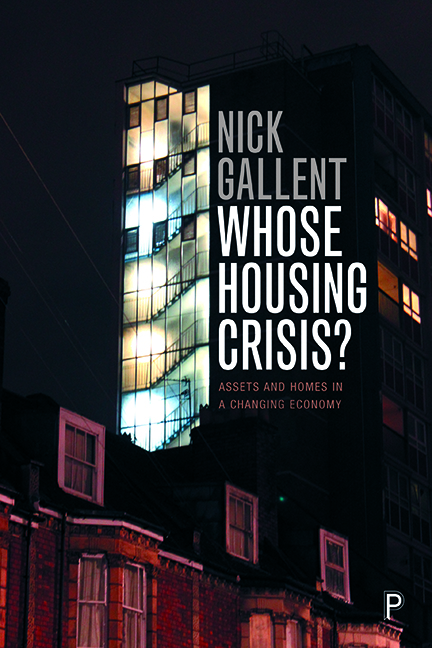4 - Local pathways to crisis
Published online by Cambridge University Press: 27 April 2022
Summary
The last chapter explored the housing crisis's broader economic context. There are important structural reasons why capital has switched into property and housing: new capital pathways, which are now well established, are key drivers of national and local housing stress in many advanced economies. But it is also the case that, over a long period of time, different countries have taken different decisions in relation to the planning and regulation of housing and housing markets. They have also developed their own non-market responses to housing stress, viewing housing as more or less a ‘private matter’ and developing public responses to shifting patterns of housing need. The purpose of this chapter is to consider different explanations (or ‘formulations’) of the housing crisis: the local pathways which have led to this point. Those pathways are important because belief in their significance underpins opinion concerning the types of responses that are needed. If housing stress, for example, evidences market failure, then possible responses include a) deregulation aimed at achieving market efficiency, b) extended reregulation that seeks to ‘correct’ (endemic) failure, or c) a shift into non-market responses. Few people believe that the market is ‘working well’ in relation to housing. But preferred remedies have deep ideological roots: some believe that the market can be made to work well; others that it cannot. The most common analysis of the housing crisis is that new housing supply is inadequate relative to demand. Politicians of all stripes see a supply response as being important. But while those on the left see a role for an enlarged public sector in delivering extra homes, those on the right regularly argue that private enterprise should be freed from the dead hand of regulation: less planning will mean more housing. The broader nature of the ‘supply debate’ was flagged in Chapter 1 and is touched upon again later in this chapter. Likewise, more is said about planning in Chapter 6.
Local pathways/formulations
The objective now, however, is to consider the diversity of ‘local pathways’ to crisis in England. An overarching emphasis on building more homes is obviously key and features in many narratives, but it was the Royal Town Planning Institute (RTPI) that, in 2007, sought to broaden housing debate in England.
- Type
- Chapter
- Information
- Whose Housing Crisis?Assets and Homes in a Changing Economy, pp. 73 - 108Publisher: Bristol University PressPrint publication year: 2019



